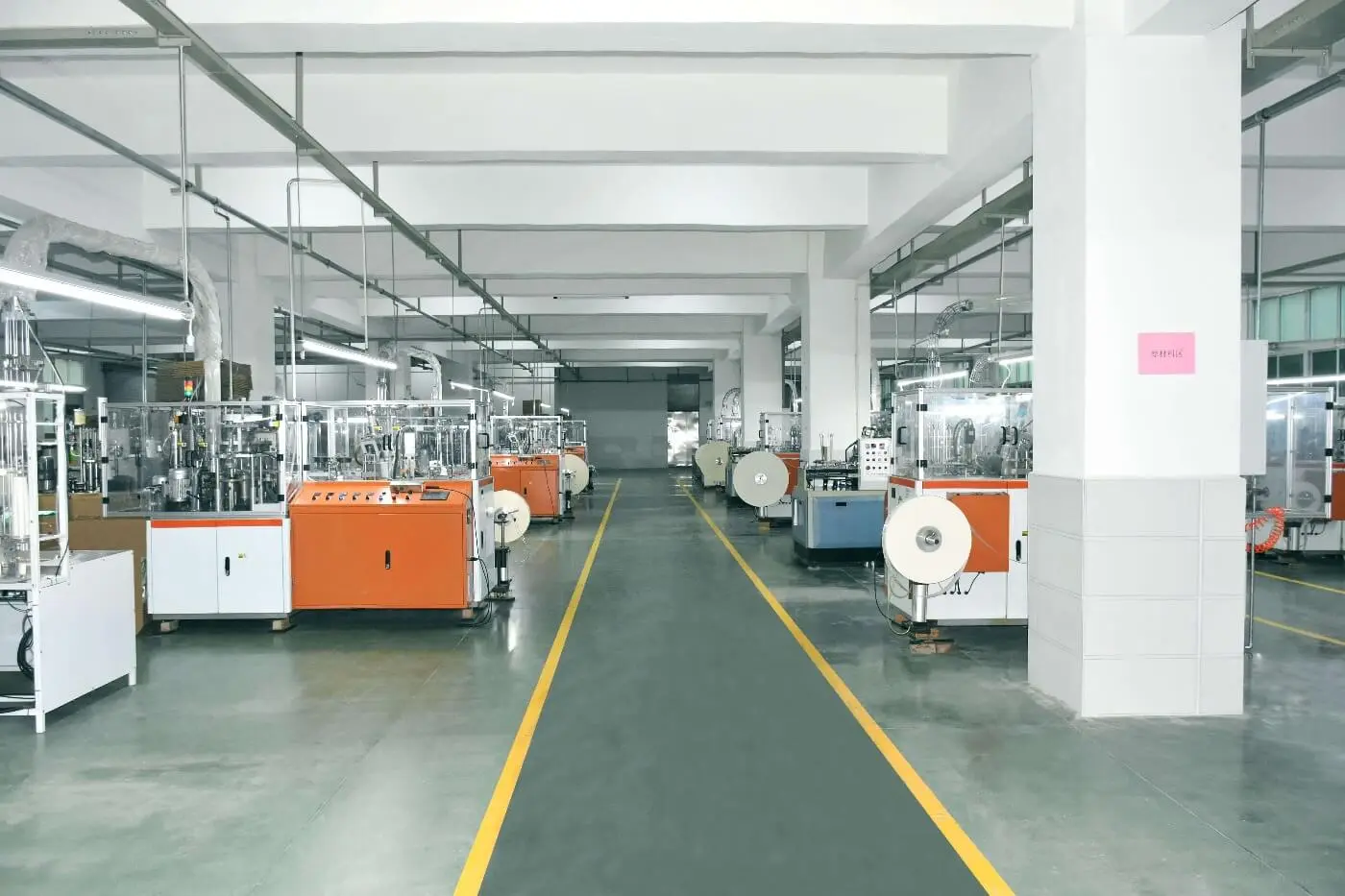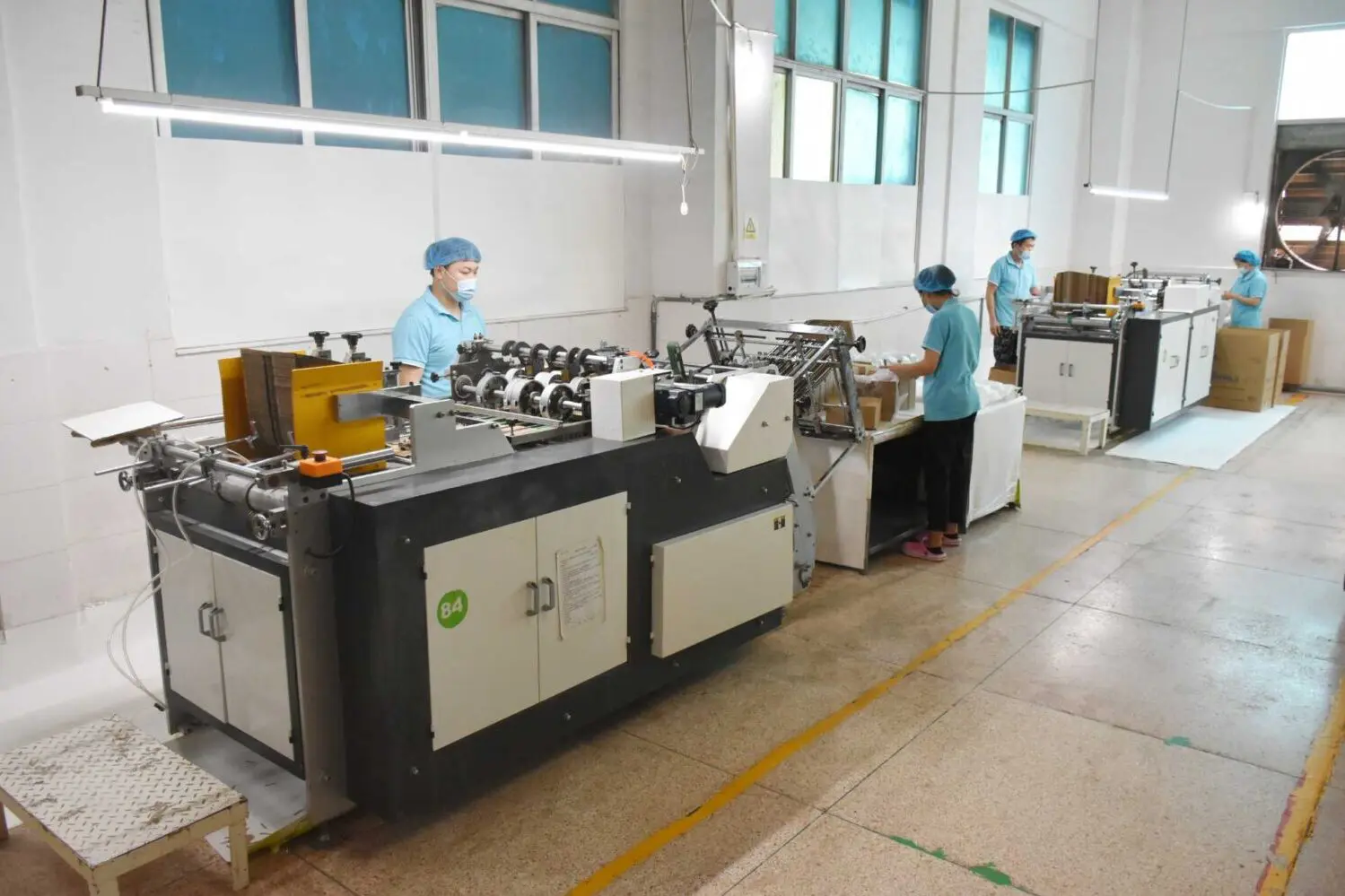Paper cup factory: 7 ways to improve production line productivity
In the competitive paper cup manufacturing industry, efficiency is critical to success. Increasing productivity while reducing resource consumption is not only a desirable goal, but also essential for sustaining market leadership.
In this comprehensive tutorial, we will look at how to increase the efficiency of paper cup manufacturing.
The current issues confronting paper cup factory
Determine the most typical obstacles in the production of paper cups.
Bottlenecks in paper cup production are caused by a range of factors, including material shortages and equipment failures. Analyzing production delays and inefficiencies allows companies to identify the root causes and develop targeted solutions.
evaluating the impact of inefficient operations on overall performance
Inefficient operations limit productivity while also affecting overall performance and profitability.

Expert advice 1. Optimize equipment and facilities.
Importance of Current Equipment in Paper Cup Manufacturing
Investing in cutting-edge equipment and technology is critical for optimizing paper cup production operations. Modern machinery, from automated shaping machines to modern printing systems, is both efficient and precise.
Strategies for maintenance and regular upkeep to avoid downtime
Regular maintenance and servicing of equipment is essential for preventing downtime and guaranteeing ongoing production. Preventive maintenance and frequent inspections lessen the likelihood of unexpected problems.
Expert Tip 2: Streamlining Workflow Processes.
Mapping Out the Paper Cup Production Workflow
Mapping the paper cup production workflow allows producers to discover unnecessary jobs and streamline procedures. Manufacturers can reduce lead times and increase productivity by automating repetitive tasks and optimizing workflow sequences.
Implementing Lean Manufacturing Principles to Reduce Waste.
Adopting lean manufacturing principles such as 5S and Kanban helps to decrease waste while increasing productivity. Manufacturers can boost efficiency by improving inventory management, reducing mobility, and standardizing procedures.
Expert Tip 3: Enhancing Employee Training and Skills.
The Value of Well-Trained Employees in Efficient Operations
Employee training is critical for enhancing production and maintaining quality standards in the paper cup manufacturing industry. Offering ongoing training programs and skill development initiatives ensures that employees have the knowledge and skills they require to excel in their careers.
Empowering employees to identify and resolve production issues
Empowering staff to discover and resolve production concerns promotes a culture of continuous improvement. To solve obstacles, manufacturers should encourage open communication and provide opportunities for input from their workers.
Expert Tip 4: Implement quality control measures.
Importance of Quality Assurance in Paper Cup Manufacturing
Maintaining product homogeneity and meeting quality standards are crucial in paper cup manufacturing. Establishing rigorous quality control systems, such as visual inspections and product testing, ensures that each cup meets the required standards.
Conducting regular inspections and tests to maintain product uniformity
Regular inspections and tests throughout the manufacturing process are crucial for ensuring product consistency and finding problems early on. Manufacturers can correct errors and maintain quality standards by conducting thorough inspections at all levels.
Expert Tip 5: Use Sustainable Practices.
Importance of Sustainability in Modern Manufacturing
Sustainability is no longer just a slogan; it is a necessary component of modern industry. Exploring eco-friendly materials like biodegradable paper and employing sustainable production methods such as energy-efficient manufacturing processes decreases environmental impact while addressing consumer demand for environmentally conscious products.
Implementing Sustainable Practices to Reduce Environmental Impact
Incorporating sustainable practices across the manufacturing process, from raw material sourcing to waste management, reduces environmental effect and improves brand reputation. By adopting sustainability, businesses may stay current with market trends and contribute to a greener future.
Expert Tip 6: Applying Data Analytics to Decision Making.
Utilizing data-driven insights to enhance operations
Data analytics offers valuable insights into industrial processes, allowing businesses to identify trends, patterns, and areas for development. Collecting and analyzing production data allows manufacturers to make better informed decisions and improve operations.
Using Predictive Analytics to Predict and Prevent Issues
Predictive analytics enables producers to anticipate and prevent production issues before they occur. Manufacturers can use historical data and machine learning algorithms to predict equipment failures, optimize maintenance programs, and minimize downtime.
Expert Tip 7: Create a Culture of Continuous Improvement.
Fostering an innovative and adaptable culture
A culture of continuous development fosters creativity, adaptability, and quality in paper cup manufacturing. By inviting comments and suggestions from employees at all levels, manufacturers establish a collaborative environment in which ideas are valued and continuous learning is encouraged.
Implementing Continuous Improvement Programs to Increase Efficiency
Establishing continuous improvement programs, such as Kaizen events and cross-functional teams, boosts productivity and fosters a positive culture. Manufacturers can achieve long-term growth and a competitive advantage by systematically identifying improvement opportunities and implementing specific initiatives.

Conclusion
To summarize, improving efficiency in paper cup manufacturing necessitates a holistic approach that includes equipment optimization, workflow streamlining, staff empowerment, quality control, sustainable practices, data analytics, and a culture of continuous development. Manufacturers can improve productivity, save costs, and position themselves for long-term success in a competitive market landscape by following the seven expert advice mentioned in this article.